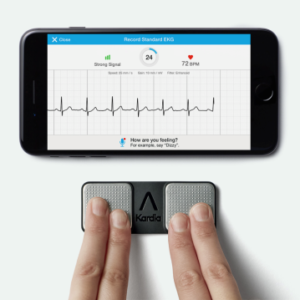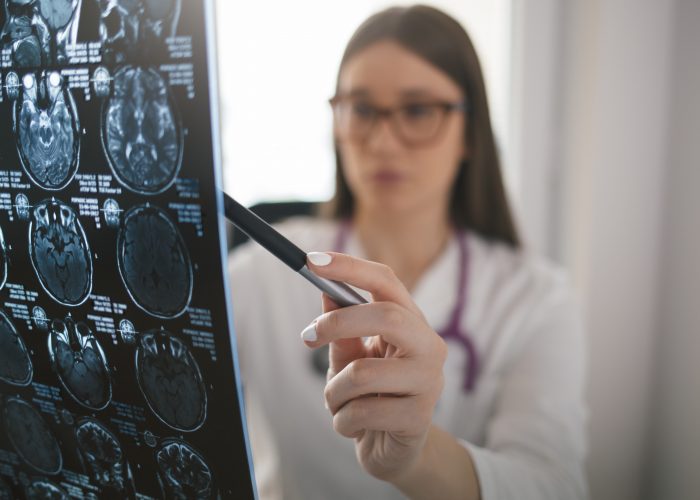Atrial Fibrillation Workshops – Imperial College Health Partners from Imperial College Health Partners on Vimeo.
Last month saw the culmination of months of preparation and hard work to deliver the first series of Atrial Fibrillation (AF) Innovation Workshops for NW London. The events were run in three locations in London and were attended by over 50 representatives from the clinical community in London, patient representatives and innovative companies working the field of AF.
AF is an irregular heart beat and is the most common form of cardiac arrhythmia affecting approximately 900,000 people in England, or 1.74% of the population. National data suggests that AF accounts for approximately 20% of all strokes. AF-related strokes are often more severe, and lead to higher rates of long-term disability and death. Prevalence in NW London is lower than the national average – Public Health England estimates that there may be in excess of 17,000 people with undiagnosed AF in North West London alone.
We wanted attendees to be in a small intimate setting to allow for immersive dialogue between peers and interaction with technology. We wanted to give patients and health professionals the opportunity to ‘see, touch and feel’ innovations, but not to have these sold to them by industry representatives. These could also be innovative ways of working as well as new technology. With this aim in mind, we chose to focus on stroke prevention for those living with Atrial Fibrillation. Over the last 6-12 months there has been an increasing national and regional focus on stroke prevention in those living with AF, both in terms of improving the quality of anticoagulation of known AF patients as well as raising the total numbers of patients on AF registers.
A small organising team headed up by our Associate and Healthcare Technology Expert, Alan Davies, set about meeting with local and national AF experts to identify leading edge proven technology and best practice which could be described by clinicians who are using and applying it on a daily basis. We wanted to have a fresh approach to engaging with our stakeholders in NW London. We challenged ourselves to go beyond the usual format. We communicated with our CCG’s beforehand explaining the aims of the events and committed to providing feedback on progress afterwards. We picked the venues and sent out the invitations…
The workshops created a buzz but also identified practical problems in delivery.
Each workshop was delivered as a day-long session designed to run through the AF pathway in bite-sized chunks from early stage detection, through to diagnosis, selecting the right anticoagulant and living with the condition. Underpinning all these themes was how innovation can assist in bringing high levels of quality to AF treatment in NW London. Attendees were encouraged to develop action plans about which areas of the pathway were most relevant to their localities and how they would move this important item forward. In order to maintain the connections formed between the attendees and also to the expert presenters, we created online communities of all attendees so that they could continue their conversations and get feedback. Following the summer, we will offer the attendees a chance to meet up with the presenters again to discuss how their implementation plans have progressed and what roadblocks they came up against.
The feedback that we have received has been excellent. We have already received a number of requests for local data and support. We also uncovered a number of previously unknown but significant challenges to achieving high quality AF pathways. These were numerous but included:
- Capacity issues – AF initiatives have led to a number of new patients being identified, how can these new patients be treated in a timely and efficient manner?
- Lack of resources to conduct case finding – previous initiatives had been launched but had not had the desired adoption and sustained use levels leading to poor patient outcomes
- Technology connectivity – attendees highlighted the lack of integration of point solutions and connectivity to current EPR systems, as a barrier to widespread adoption
- Lack of regularly updated data – annual NHS updates provide historic data annually; anticoagulation monitoring data is not readily accessible, these challenges being overcome by a tool developed by Greater Manchester AHSN
- Calibration issues – in the rare instances where technology was used for self-monitoring, a lack of financial resources can lead to inaccurate readings due to calibration issues within primary care
- Patient activation – poor adherence to treatment plans of all anticoagulants was cited as a large opportunity area for improvement
ICHP’s role will be to work with both local AF pathway leaders and external AF experts (both clinical and industry based) to address these challenges and enable action. In order to maintain momentum and continue the dialogue during implementation, a community of practitioners has been established on an online peer exchange platform, and we will also be looking at other ways to help create and maintain an active AF network.
Lessons learned – what will series 2 look like?
This process from conception to delivery has been a learning experience. Our challenge as an AHSN is to continue to support our NW London healthcare stakeholders, building on the momentum we have already crated. We need to foster best practice collaborations in order to deliver improved levels of care for AF patients, helping to decrease the number of AF-related strokes and deaths in London.
We have had the privilege to work with the leading innovators in the AF field and also to hear the frustrations and concerns of patients who are living with this condition. Our plan is now to complete the cycle with our first wave of attendees with their 3-month clinic at the end of the summer and support the launch of a second series of regional workshops hopefully later in the year. Based on the feedback we received these are likely to focus on practical sessions looking at how primary care can actually interrogate their data to identify at risk patients. They will likely be shorter, sharper and even more interactive. It has been a pleasure to see these events take shape and finally launch in NW London and we look forward to working with our CCGs on transferring their action plans into reality and ultimately benefit their AF patient populations.
If you would like more details on running similar workshops in your area please contact:
Shirlene Oh (Shirlene.oh@imperialcollegehealthpartners.com)




